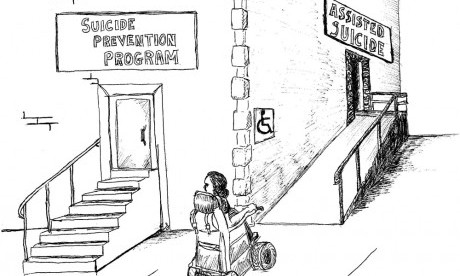Suicide has never looked more vivacious.
In Brittany Maynard, advocates of assisted suicide have found their ideal spokeswoman.
She is not an aging hippy embittered by her loss of energy.
As far as one can tell, she is neither a radical individualist nor a nihilist.
She is, by all appearances, a loving, life-embracing young woman.
Before she was diagnosed with brain cancer, she and her husband were, in her words, “trying for a family.” She continues to enjoy activities with loved ones.
She took up the cause of assisted suicide after she was diagnosed.
Despite the promises of contemporary palliative care, she faces an uncertain future that might well contain pain and indignities that none of us would wish upon our enemies, much less a newly wed young woman.
Because of her youth and overall health, her death in hospice might be prolonged.
The prospect of illness and death found Brittany Maynard; she did not go seeking it, at least initially.
But now she seeks something at least as dreadful as death.
She has sought and obtained the assistance of medical professionals in committing suicide.
In an essay published by CNN, she recently declared that she moved to Oregon to secure drugs with which to kill herself.
She has chosen to perform the deed shortly after her husband’s birthday.
A celebration of the anniversary of his birth will be suffused with the prospect of her death.
She did not seek death, but as it now seems inevitable, she has sought and obtained the means with which to hasten it in order to avoid its most brutal ravages.
Brittany Maynard’s story is perhaps the most emotionally compelling case one could make for legalizing assisted suicide.
As she notes, her circumstances are unique, and she is not arguing that physician-assisted suicide is right for all, or even for most.
But why, she asks, should she not have a right to choose?
This is a fraught question. It must be answered with care. But it must be answered. Continue reading
Sources
- Public Discourse
- Image: Second Thoughts
News category: Features.




